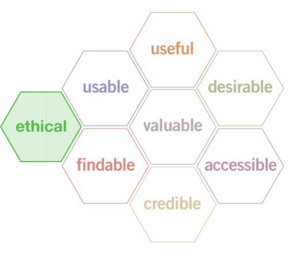May 12th, 2008 — 12:00am
‘Companies spend huge amounts of money to be ‘socially responsible.’ Do consumers reward them for it? And how much?’ is the leader for a short piece titled Does Being Ethical Pay? just published in Sloan Management Review. The quick answer is “Yes”, so it’s worth reading further to learn the specific ways that ethicality plays into people’s spending decisions.
Here’s an excerpt:
In all of our tests, consumers were willing to pay a slight premium for the ethically made goods. But they went much further in the other direction: They would buy unethically made products only at a steep discount.
What’s more, consumer attitudes played a big part in shaping those results. People with high standards for corporate behavior rewarded the ethical companies with bigger premiums and punished the unethical ones with bigger discounts.
At least according to this research, being ethical is a necessary attribute for a product.
There are clear implications for product design: ethics should be on the table as a concern at all stages of product development, from ideation and concepting of new products, to the marketing and sales of finished products.
And these (limited, certainly not the final word) findings match with the idea of adding ethics to the set of important user experience qualities captured in Peter Morville’s UX Honeycomb.
The (Augmented) Ethical UX Honeycomb

How are user experience designers taking the ethical qualities of their work into account?
Related posts:
Comment » | Ethics & Design, User Research
October 16th, 2005 — 12:00am
OCLC has caught the socially constructed metadata fever. A release on the OCLC site titled “User-contributed content pilot” discusses a pilot program to allow Open WorldCat users to add publicly visible metadata, in the form of reviews and descriptive details, to existing records.
This looks the latest step in the wave of exploration of methods and models for putting socially constructed metadata into practice that’s playing out in public. (Is this necessarily done in public? I’m curious to hear thoughts on how this might be done with closed or cloaked communities, like IBM’s intranet).
Broadly, it looks like a wide variety of entities are following the standard new product or service development cycle with regards to socially constructed metadata. A simplified version of this cycle is:
1.Conceptualization, technology development
2.Product development
3.Introduction to market
4.Market Acceptance and growth
5.Ongoing Market as conventional product
A quick review of known social bookmarking / tagging ventures distributed over a number of organizations supports the idea that each experiment is at one of these stages.
Some visualizations of development and prototype cycles are available here, and here.
Where’s it headed? I think we’ll see at least forms forms or applications of socially constructed metadata stabilize and become publicly recognized and accepted in the near future, with more on the way that will surprise everyone. Those four are:
1. Fee for services models, paying for access to premium quality pools of collectively managed information under professional (paid) editorial custody. OCLC could adopt this model.
2. Non-commercial community driven pools of social knowledge. This might be delicio.us.
3. Deployment as an enabler or attribute of other product / service models. Flickr is an example of this perhaps.
4. Publicly free but commercialized information mining operations, deriving salable value from formalizing the semantic relationships between people, groups, and information objects. TagCloud.com might fall into this group, or maybe Cloudalicious.
5. Something very innovative I will wish I’d thought of when it’s released.
Excerpts from the OCLC release:
“As of October 9, 2005, Open WorldCat users are able to add their own content to authoritative WorldCat information about library-held titles. Available under the Details and Reviews tabs, this functionality permits those who have located library items through Open WorldCat to return to the interface and add evaluative content.”
“User-contributed content will help extend the OCLC cataloging cooperative to include non-cataloging library professionals and – more importantly – patrons. Their shared participation in WorldCat content creation and management could foster a larger sense of library-centered community and generate more interest in library resources.”
Related posts:
Comment » | Social Media
